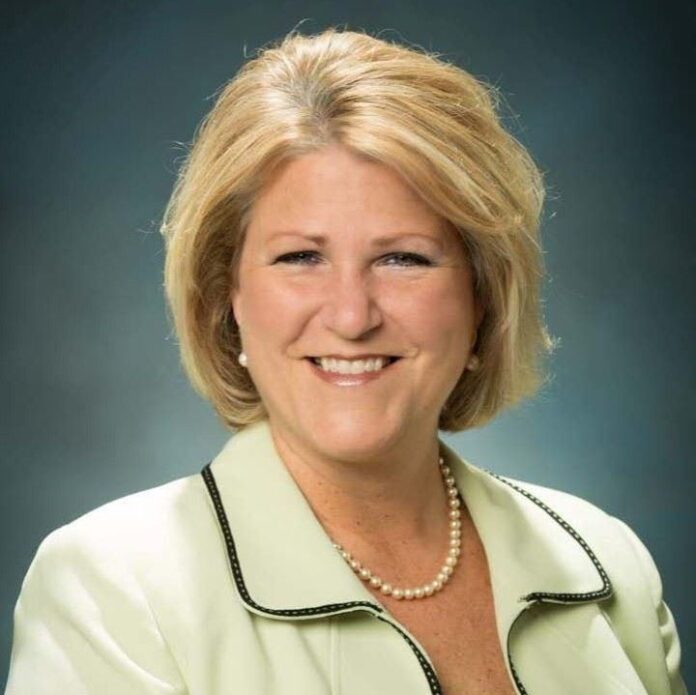
The City of La Palma voted unanimously on Monday to begin the process of potentially altering the way their residents elect the city council after receiving a demand letter in March from a law firm alleging violations of the California Voting Rights Act (CVRA).
In March, Malibu attorney Kevin Shenkman, writing on behalf of his client, the Southwest Voter Education Project, cited a host of reasons the city’s at-large elections were in violation of the CVRA, demanding the city switch to a district-based election system.
“This whole thing bothers me so much,” said Mayor Michelle Steggell. “I am just so unhappy with this,” she said, “and I want that to be on record.”
“We’ve never had a problem,” the mayor continued, “not one person has come to the city council to say, ‘I am not being represented,’” she said.
Happy or not, the Council voted unanimously to move forward and institute a process that could result in changing their at-large system, though with some apprehension. Unlike the nearby city of Cypress, La Palma Council members discussed their feelings in open session and seemed intent on making sure its citizenry had input into the process.
After receiving their demand letter from Shenkman in March, the city council voted in a special meeting in April to discuss the demand, then voted in open session to hire a demographer and request more time to attempt to comply.
La Palma City Attorney Ajit Thind said he had exchanged emails with Shenkman and asked for an additional 90-day period to put proposals together. Shenkman, in a separate interview, said Thind’s request would likely be approved since the law firm truly believes the Council is responsibly addressing the situation brought forth in his letter.
In addition, Thind said the resolution approved by the La Palma Council in an earlier special meeting also authorized the hiring of a consultant, so he introduced Dr. Justin Levitt, the Vice President of National Demographics Corporation, the same firm utilized by the City of Los Alamitos when they switched to district voting.
Similar to the explanation Levitt provided to Los Alamitos, the demographer explained the various governmental aspects of districting, including how the districts are created, what can and cannot be included, explaining a variety of other factors to ensure their overall fairness and nonpartisanship.
In the past decade, said Levitt, more than 150 California cities and approximately 250 school districts have converted to district voting. He said since the law was changed in 2013, the target entities are given 90-day windows in which to transaction to district-based voting.
“Now, the law itself provides 90-days to transition, however the attorney can agree to extend this period. Actually, some cities have negotiated several months in order to increase public participation and engagement,” he said.
Levitt said he would offer mapping tools on the internet for citizens who want to submit their own districting plan as the city moves closer toward switching from at-large to district based elections.
“I just feel this was kind of just dropped on us,” said Council member Marshall Goodman.
“The learning curve is steep and I’m trying to figure this out,” he said.
Nevertheless, Goodman said he would support electing a mayor at-large, so that the citizens voters will remain “connected” to be able to elect one official at large, while the rest would represent districts within the city.
First, he said, “I think we definitely would want to engage the public. We are representing them, this is their matter,” he said.
The new system would also have to set term limits, and Goodman said he needs to know more before having an opinion on term limits. “This could change with the more information I get,” he said.
Council member Nitesh Patel also suggested the city’s elderly residents should definitely be engaged to allow them to know what is going on.
“Number one, you have to look at our population,” said Patel. “They’re elderly. A lot of them may not be accustomed to online [activity]. So forums, being able to engage them personally physically, would be ideally the first way that I would like to see them engaged.”
Patel also expressed interest in electing a mayor at large but said he would have to learn more about the process “and decision-making powers and things like that.” He spoke against an ad-hoc committee, saying the entire council should be involved in every decision on a matter of such importance.
City manager Conol McNamara said staff will continue to support the efforts and asked the council for input on a number of housekeeping items related to the districting process.
McNamara said the council will hold another public hearing in two weeks at which time Council members will have additional information.
